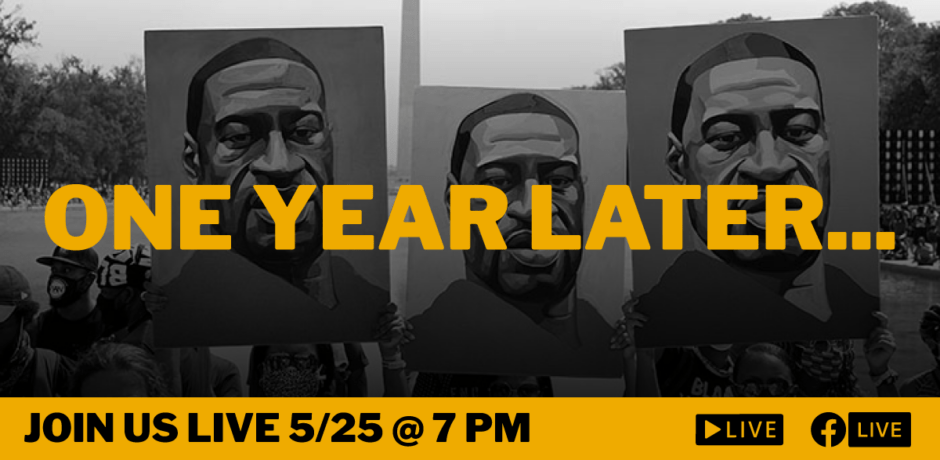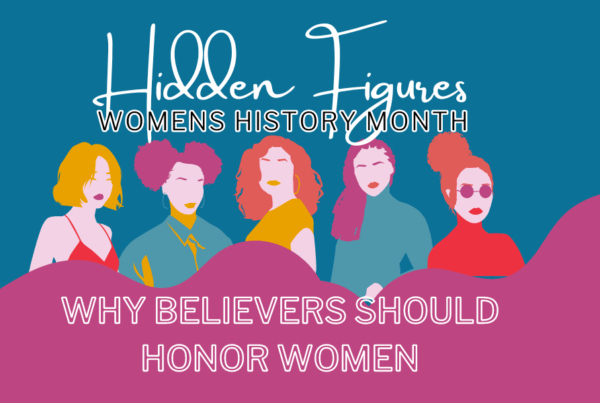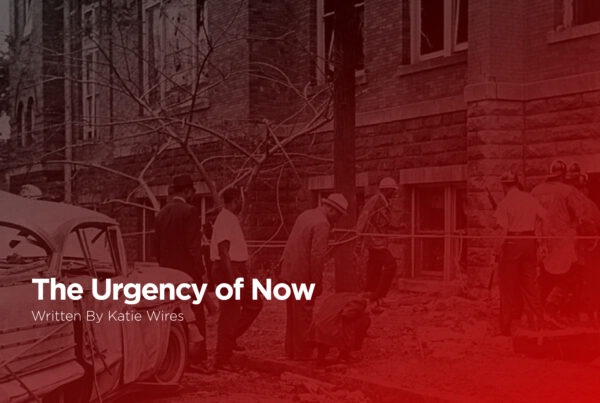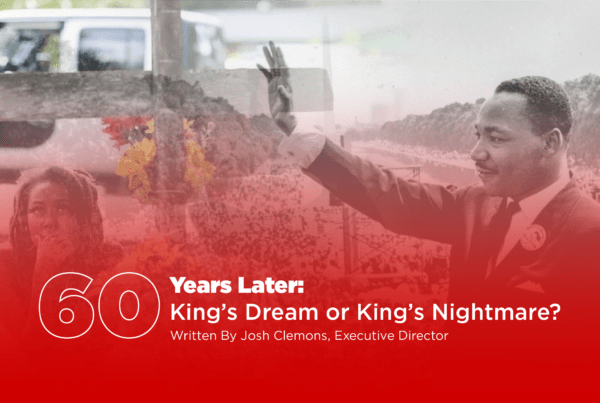“I can’t BREATHE.” Oxygen. Breathe. Life Inhale. Exhale.
In the beginning, God created humankind in his image, fashioning them in His likeness. Male and female He created them. When He was done sculpting the man, He blew the breath of life into his nostrils, causing him to live. Breathing is indispensable to life. It’s a gift from God. Every moment that we are alive, breathing, is rife with possibilities for flourishing, joy, and impact. Every moment is an opportunity for us to give the Creator glory through His creation. This glory, this opportunity for joy, flourishing and impact was heinously stolen from our dear brother, George Floyd. What’s worse, is that we ALL bore witness to this senseless tragedy. We couldn’t turn away. Racism became real for some and reaffirmed its presence for others. It became undeniable.
Now the question is: One year later, what has changed? Are you still engaged in the fight against injustice? Are you still outraged that someone could senselessly lose their life by the very person charged to protect it? Are you leaning in to hear and understand? Do you know there are countless unjust experiences like George Floyd’s? Are you aware? Are you fighting for a more merciful and just world? Perhaps the inverse is true. You’re tired. Tired of hearing about injustice. Tired of the fight. Cold. Calloused. Disengaged. In disbelief, as in you think racism is but a political distraction, duping some into believing in its presence in the world.
Mostly, We Agree
Wherever you find yourself, the data doesn’t lie. One thing we do agree upon is that the Church must be a part of the solution. Nearly two-thirds (64%) of practicing Christians believe that the Church must be engaged in the work of improving race relations. This means that we believe that the Church, by its very theological constitution, is invited and obligated to be a part of championing change and improvement concerning race relations. Yet, we found that after the racial violence of 2020, Christian’s desire to address racial injustice decreased by 13%. Meaning: We have work to do. The fact that only 2/3’s of Christians believe that we are called to reconciliation is problematic. The fact that our hearts have grown colder and disillusioned should be troubling. We are witnessing a discipleship failure. What does loving neighbor really mean? Does it mean loving those of the same color, class, and culture? Does it mean inclusivity or exclusivity? Does it mean that we must engage across ethnic, social, and cultural differences? Perhaps, we should avoid the “political” trap all together?
Orthodoxy, Orthopathy, & Orthopraxy
What we continue to witness is a disconnect between orthodoxy, what we believe; Our orthopathy, how our heart engages with what we believe; and our orthopraxy, how we practice what we believe. There is a head, heart, and hand disconnect. Christians are not found practicing and experiencing the theology that they claim to believe. It begs the question: If we don’t practice and feel, do we really believe? This must change.
It is time for the Church to be roused through the power of the Holy Spirit to wage war on apathy, inaction, and injustice. It is time for the Church to hold right beliefs, that translates to right feelings, that translates to right action. We must rethink our discipleship approach as the body of Christ. We must begin to truly love God, and express that love by loving and valuing what He loves: People. We must move from a mere vertical Gospel, to one that is robust, calling us to be merciful and just toward neighbors and including the ethnic other.
Consider
As you consider where you are as it relates to this watershed moment that occurred one year ago. Ask yourself these prompting questions:
- How are you engaging in the work of reconciliation?
- Do you really believe that to love God and to love your neighbor is a divine invitation to get involved in the work of mercy and racial justice?
- How is your heart? Has it grown cold to the plight of black and brown people? Has it grown cold to the “race conversation?”
- Are you engaging the issue through prayer? Steady, consistent, and passionate prayer?
- What are you doing to build bridges of trust and truth in your home, church, community, work, and world?
- What books, documentaries, podcasts, and seminars are you engaging with presently? Are any of them written, led, produced, authored by people of color?
Lean In
We invite you to lean in. We invite you to act justly. We invite you to love mercy. We invite you to walk humbly with God and people. We invite you to be reconciled. Here is our advice to posture your heart for leaning in and signing up to be a reconciler.
- Listen – You must hear the cry from voices on the margins like God heard the cry of the Israelites oppression in Exodus 2; “The Israelites groaned in their slavery and cried out, and their cry for help because of their slavery went up to God. God heard their groaning and he remembered his covenant with Abraham, with Isaac and with Jacob.” You must incline your ear and your heart to hear and feel the pain of the ethnic other. We must listen, truly listen. Don’t listen with the intent to respond, but listen to the cry and respond as the Holy Spirit directs you. Listening leads to learning.
- Learn – We must be consistently learning to gain insight into the problem that we say we care about. This includes books, podcasts, seminars, conferences, and videos. We must learn about the world around us and how racism has devastated it. We must learn about the people that have been impacted, marginalized, and in George Floyd’s case, have lost their lives because of this evil. We must get invested in Knowing The Story. There are many resources on the market. Here are a few that I recommend: 1.) Be The Bridge – Latasha Morrison 2.) Color of Compromise – Jemar Tisby 3.) One Blood – Dr, John Perkins 4.) Many Rivers to Cross – Henry Louis Gates (Documentary) 5.) Weep with Me – Pastor Mark Vroegop. 6.) Where do we go from here? – Dr. Martin Luther King 7.) Jesus Among the Disinherited – Howard Thurman 8.) Race and Redemption – Brooke Hempell and Susan Robinson (Podcast) 9.) Thirteenth – Ava Duvarney (Documentary)
- Lament – Join in the collective suffering, grieving, and intercession of a people. Biblical lament finds its root in total, unabashed, fully reliant dependance upon God. Essentially, it is grief about the pain of injustice turned upward, toward the one that is able to get involved, offer comfort, and make wrong things right. We must lament the fact that we are here. We must lament the fact that we have to commemorate such an egregious occasion; that we have to lament so many egregious occasions. We must lament. Lament allows us to join in the collective cry of people inviting God to do only what He can do: Release Mercy and Justice.
- Leverage – Finally, you are invited to leverage your power, position, and privilege for Kingdom good. See the problem for most people is getting the rubber to meet the road. We must act. Our held theology must translate into action. The world, the ethnic other is depending on you. “Well Josh, I’m not sure how? What can I do? How do I get involved?” Glad you asked. In our respective spaces, we all have access to agency. Meaning, we have the power of choice. We can choose to esteem marginalized voices. We can choose to hire those in which the deck is stacked against. We can get invested in our communities, championing just solutions that benefit communities of color. We can use whatever influence we have to raise the issue to the ears of those in power. Every one of us possesses a level of power, position, and privilege. We must do the hard work of considering where this power, position of privilege resides in our respective eco systems and find ways to leverage it. Perhaps you’re a mom, join the PTA, attend school board meetings, join community groups that are advocating for those on the margins. Join an organization that is committed to advocacy on issues that affect black and brown people. Perhaps you’re a professional, consider who you’re hiring, who you are empowering, and who you are mentoring. Perhaps you’re a Christian and you attend a local church, start asking probing questions about existing initiatives that you can be involved in; also, ask are we making this a safe place for people of color? Are we discipling believers to love and engage black and brown people by being invested in issues that uniquely affect them? What are we as a church committed to? How far are we willing to go to express love for our neighbor?
Be A Reconciler
We call you higher… lean in and stay the course. The pressing proposition the Church must respond to is a community of people saying “I can’t breathe” because they don’t know and have not witnessed the good news of Jesus expressed through the Church. We must be the answer. We must emerge as the Good Samaritans in the world ready to respond to the cries of the oppressed; black and brown people that are adversely and disproportionately impacted through systemic injustices, social plights, and emotional rejection. How will we respond? We invite you to lean in. We invite you to act justly. We invite you to love mercy. We invite you to walk humbly with God and people. We invite you to be a reconciler.





